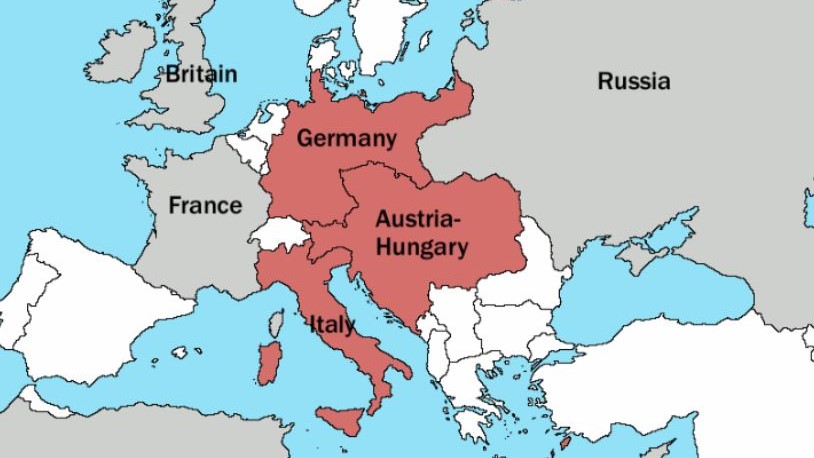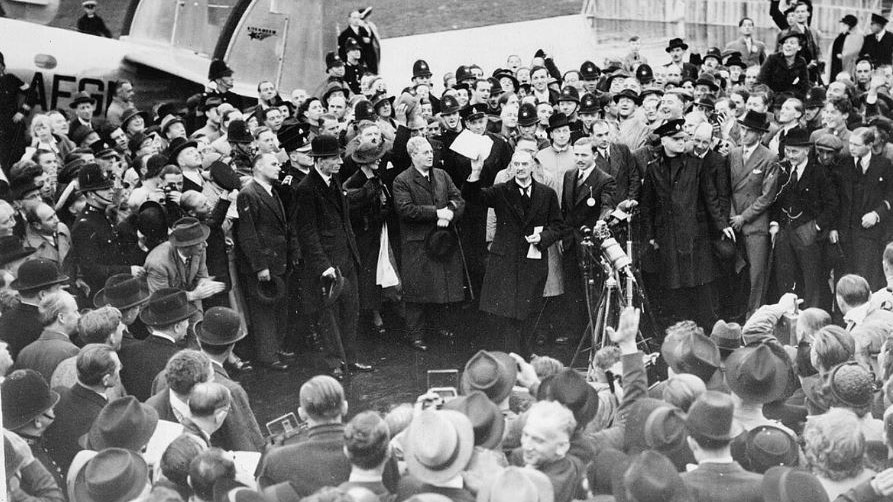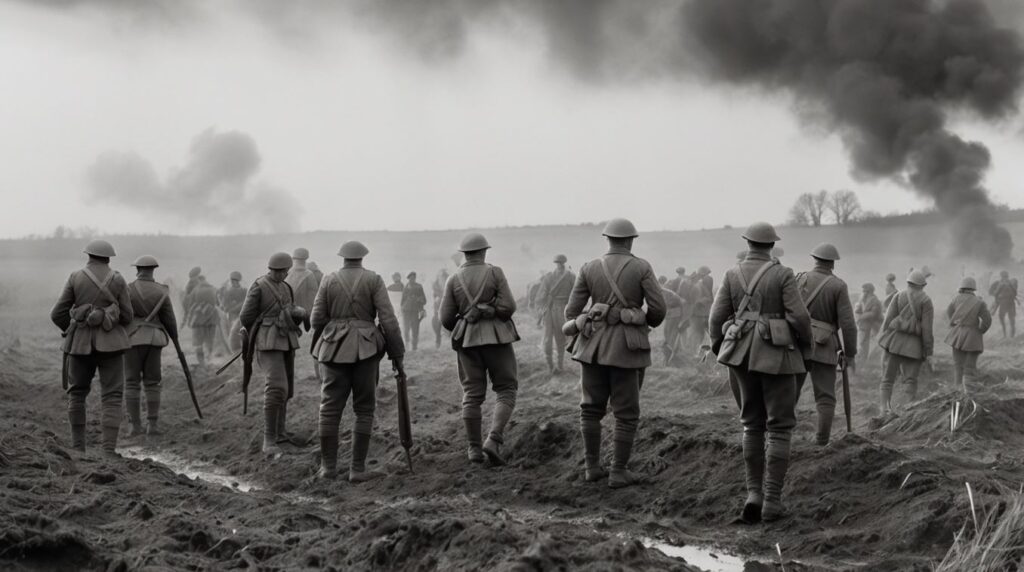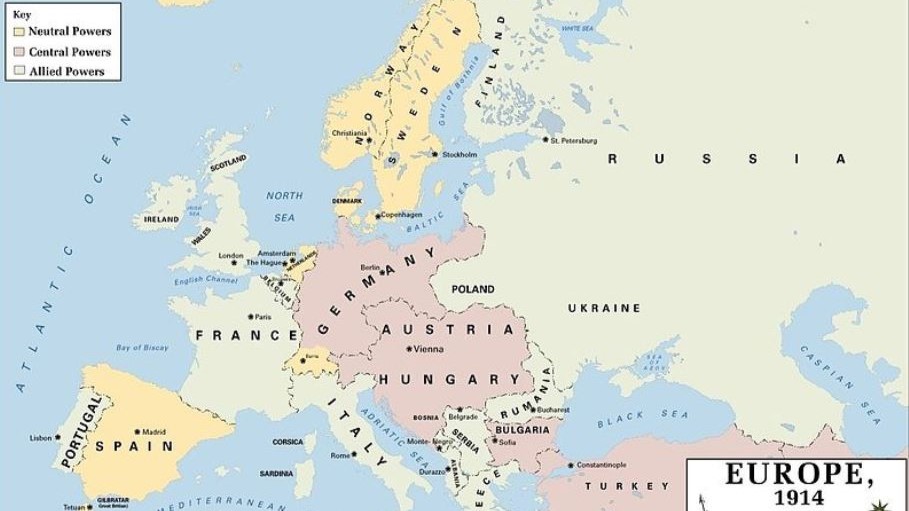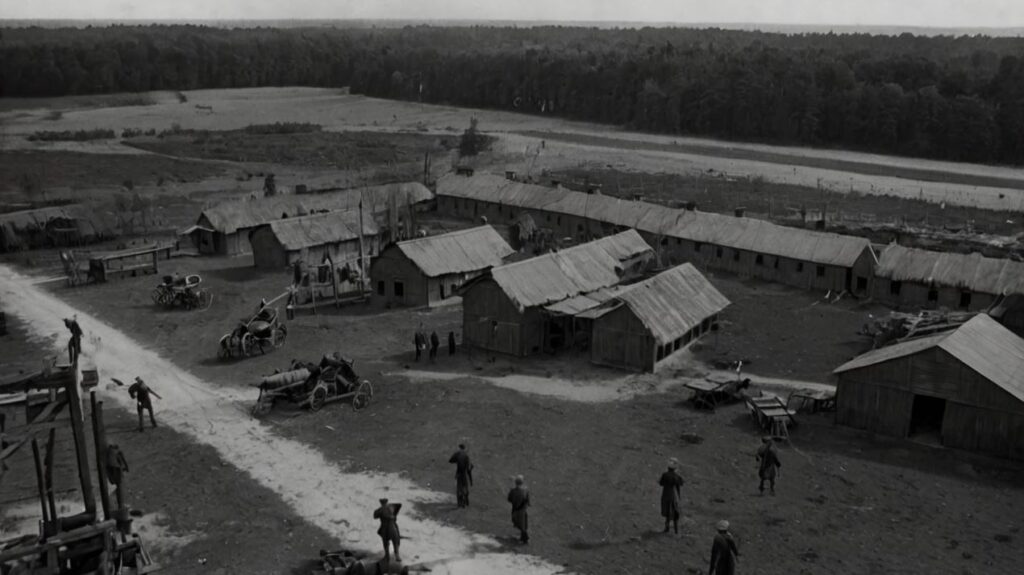In 1882, Germany, Austria-Hungary, and Italy forged the Triple Alliance, a defensive pact that would profoundly influence European politics. This alliance aimed to provide mutual protection and balance power in a volatile continent.
Germany sought to secure its position, Austria-Hungary wanted to maintain its empire, and Italy looked for support in its colonial ambitions.
Italy’s geographic position made it a linchpin in European military strategy. Its long Mediterranean coastline and shared border with France gave it immense strategic value.
An Italy aligned with the Central Powers could threaten France on two fronts, potentially tipping the scales of war.
This alternate history exploration examines how Italy’s continued allegiance to the Triple Alliance might have altered World War I’s course.
1. Triple Alliance: Historical Context and Diverging Interests
Europe’s Web of Alliances
Pre-World War I Europe was a complex chessboard of competing alliances and interests.
The Triple Alliance, formed in 1882, united Germany, Austria-Hungary, and Italy in a defensive pact.
On the other side stood the Triple Entente, comprising Britain, France, and Russia.
These alliances were originally designed to maintain peace through a balance of power. But they ultimately created a volatile situation where a localized conflict could rapidly escalate into a continent-wide war.
The formation of these alliances was driven by a mix of historical rivalries, territorial ambitions, and fears of isolation.
Germany, feeling encircled by potential enemies, sought strong allies. Austria-Hungary, a multi-ethnic empire struggling with internal tensions, needed support to maintain its territorial integrity.
The Triple Entente was forged out of mutual concerns about German expansionism and a desire to protect colonial interests.
Italy’s Initial Alliance Motivations
Italy’s decision to join the Triple Alliance in 1882 was primarily motivated by its desire for protection against France and support for its colonial ambitions in North Africa.
At the time, Italy was a newly unified nation seeking to establish itself as a European power. The alliance with Germany and Austria-Hungary offered Italy the backing of two major continental powers.
Italy’s colonial aspirations were particularly focused on Tunisia, which it viewed as a natural extension of its influence.
However, France’s occupation of Tunisia in 1881 had frustrated these ambitions and created tensions between the two nations.
By aligning with Germany and Austria-Hungary, Italy hoped to gain leverage against France and secure support for future colonial ventures.
Italy also sought to protect itself from potential Austrian aggression.
Despite being allies, Italy and Austria-Hungary had a history of conflict, with Italy having gained independence from Austrian rule. The alliance was seen as a way to keep Austria-Hungary in check while pursuing Italian interests.
However, by 1914, Italy’s strategic situation had changed. Its colonial ambitions had shifted towards Libya, which it had acquired from the Ottoman Empire in 1912.
Furthermore, Italy has ambitions in the Adriatic. Particularly for the Italian-speaking regions still under Austrian control.
These factors contributed to Italy’s decision to remain neutral at the outbreak of World War I, despite its alliance commitments.
Cracks in the Alliance
As the years progressed, tensions within the Triple Alliance became increasingly apparent. The primary sources of friction were conflicting interests in the Balkans and competing colonial ambitions.
Austria-Hungary’s annexation of Bosnia and Herzegovina in 1908 was a significant turning point.
This unilateral action not only angered Serbia and Russia but also raised concerns in Italy about Austria-Hungary’s expanding influence in the Balkans.
Italy had its own aspirations in the region, particularly in Albania, and viewed Austrian expansion as a threat to its interests.
The Italo-Turkish War of 1911-1912, in which Italy seized Libya from the Ottoman Empire, further strained relations within the alliance.
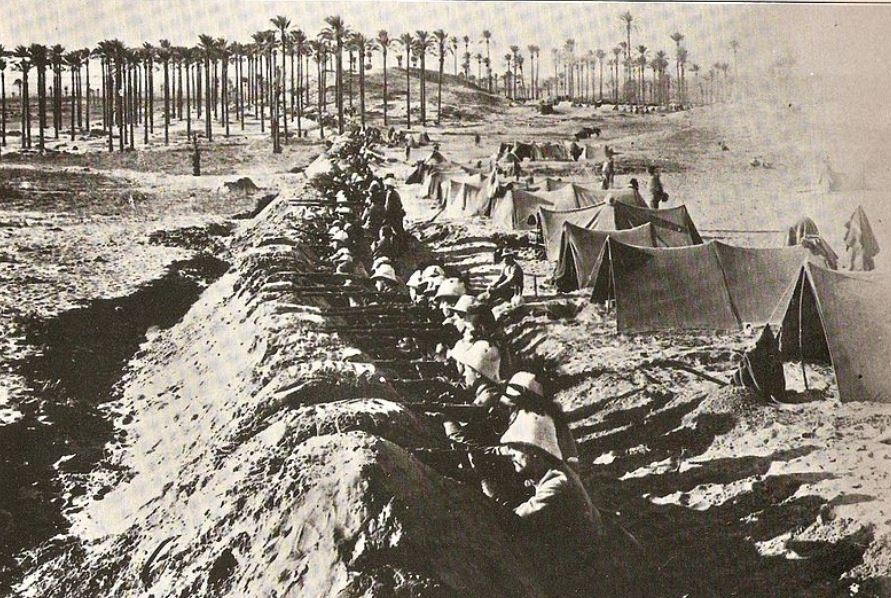
Germany and Austria-Hungary were wary of Italy’s aggressive actions, fearing they could destabilize the region and potentially drag the alliance into an unwanted conflict.
Moreover, Italy sought to incorporate Italian-speaking regions of Austria-Hungary into Italy. This created underlying tensions between the two allies. The territories of Trentino, Trieste, and Dalmatia were particular points of contention.
These conflicts of interest and the growing mistrust between the allies weakened the cohesion of the Triple Alliance. By 1914, the alliance existed more on paper than in spirit, setting the stage for Italy’s eventual decision to remain neutral and later join the Entente powers in the war.
2. Military Implications of Italy’s Loyalty to the Triple Alliance
Reshaping the Eastern Front
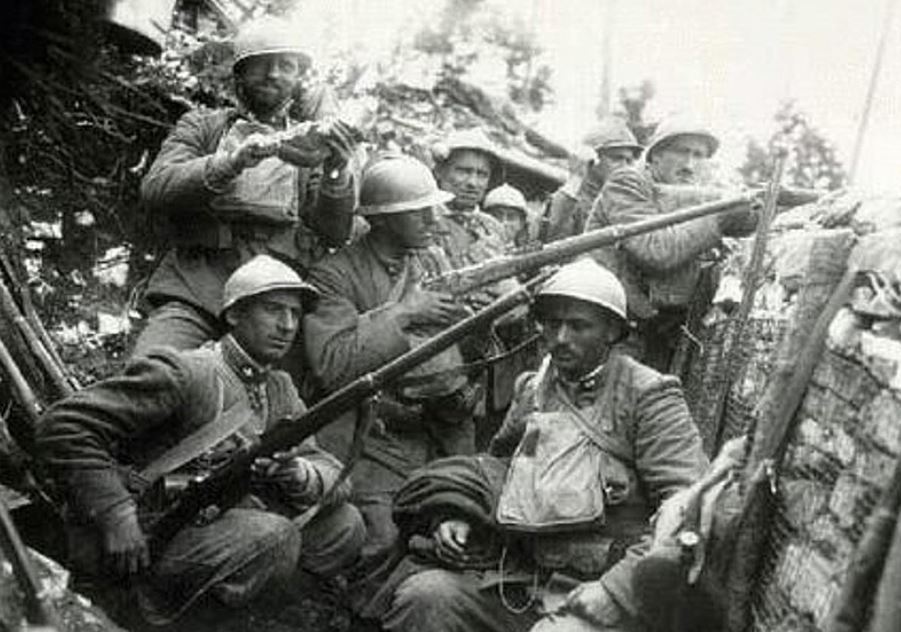
If Italy had remained loyal to the Triple Alliance, the military landscape of World War I would have been dramatically altered, particularly on the Eastern Front.
Austria-Hungary would no longer need to defend its southwestern border against Italy. It could have redirected a significant portion of its forces eastward against Russia.
This reallocation of troops could have had several profound effects:
- Increased pressure on Russian forces: The additional Austro-Hungarian troops could have bolstered offensives against Russia, potentially leading to earlier and more decisive victories.
- Support for German operations: The reinforced Austro-Hungarian army could have provided more effective support for German operations, enhancing the overall effectiveness of the Central Powers’ eastern strategy.
- Potential for earlier Russian collapse: The combined pressure from a stronger Austro-Hungarian force and the existing German army might have accelerated Russia’s military and political collapse, possibly knocking them out of the war sooner than 1917.
- Freeing up of German resources: With a more capable ally on the Eastern Front, Germany might have been able to commit more forces to the Western Front, potentially changing the course of key battles there.
- Reduced Russian resources: Russia might have received less material support, exacerbating its military and economic challenges.
A New Western Front in the Alps
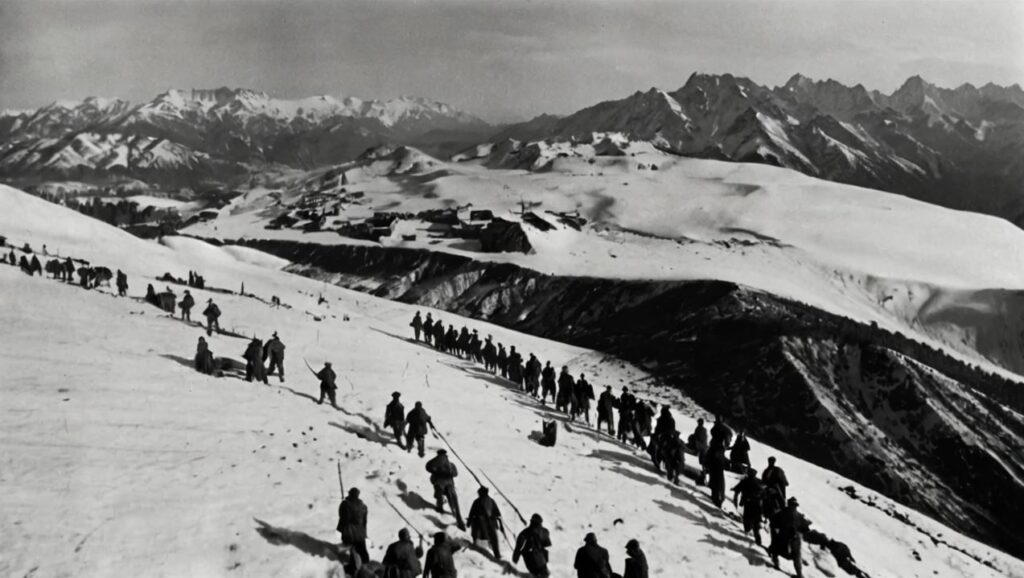
An Italy aligned with the Central Powers would have opened a new and formidable front against France along their shared Alpine border.
This development would have forced France to fundamentally reconsider its military strategy and resource allocation.
Key implications of this new front include:
- Division of French forces: France would have been compelled to divert significant manpower and resources to defend its southeastern border, weakening its ability to concentrate forces against Germany in the northeast.
- Impact on the Schlieffen Plan: The division of French forces could have allowed for a more successful implementation of Germany’s Schlieffen Plan, potentially leading to a swift defeat of France in the early stages of the war.
- Alpine warfare challenges: The harsh terrain of the Alps would have presented unique challenges, potentially leading to the development of specialized mountain warfare tactics and equipment.
- Strain on French logistics and supply lines: Fighting on two fronts would have strained French logistics, potentially impacting their ability to sustain prolonged military operations.
Mediterranean Naval Warfare
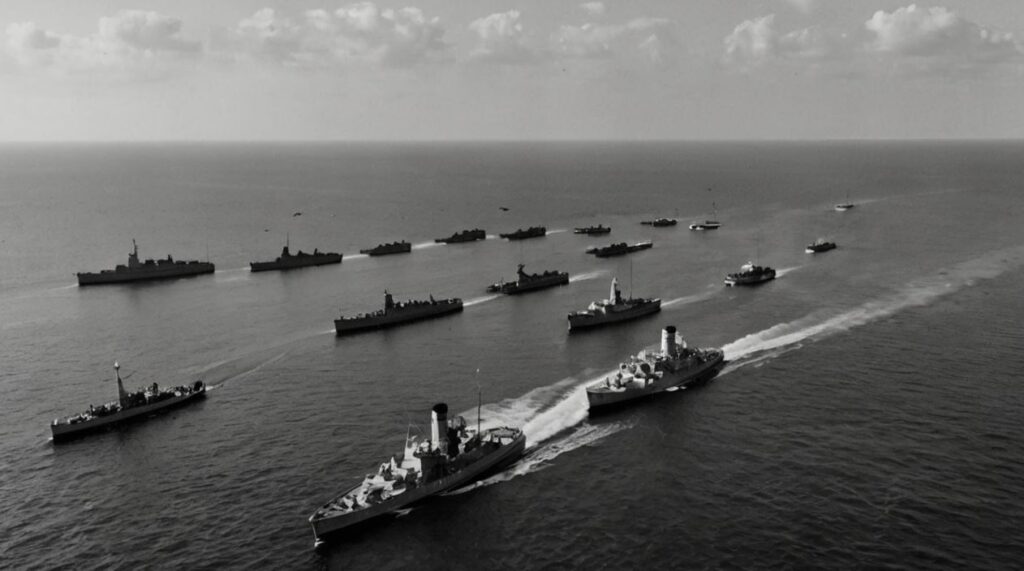
The addition of the Italian navy to the Central Powers would have significantly altered the naval balance in the Mediterranean.
Combined with the Austro-Hungarian fleet, it could have posed a serious challenge to British and French naval supremacy in this crucial theater.
This shift in naval power could have led to:
- Disruption of Allied supply lines: The Central Powers’ naval presence could have threatened key Allied shipping routes, potentially disrupting the flow of troops and supplies from colonial territories.
- Threat to strategic positions: Increased naval activity could have jeopardized Allied control over crucial territories like Egypt and the Suez Canal, vital for maintaining communication and supply lines with Asia and Australasia.
- Potential for amphibious operations: A stronger naval presence might have allowed the Central Powers to consider amphibious operations against Allied territories in the Mediterranean, opening new fronts in the war.
- Reallocation of Allied naval resources: The Allies might have been forced to commit more naval assets to the Mediterranean, potentially weakening their naval presence in other theaters, such as the North Sea.
Italy’s hypothetical loyalty to the Triple Alliance would have had far-reaching implications for the military aspects of World War I. It would have reshaped strategies on both the Eastern and Western Fronts, while also significantly altering the naval balance in the Mediterranean. These changes could have potentially led to a very different outcome of the war, underscoring the critical role that Italy’s allegiance played in the actual course of World War I.
3. A Victorious Triple Alliance, with Italy Included
Redrawing the Global Map following a Triple Alliance Victory
A victorious Central Powers alliance including Italy could have led to significant territorial changes across Europe and beyond.
In Europe, Italy might have gained long-coveted territories from France, such as Nice, Savoy, and Corsica.
In the Balkans, Italy could have expanded its influence, potentially annexing parts of Dalmatia and establishing a protectorate over Albania.
In North Africa, Italy might have significantly expanded its colonial holdings.
Libya, already under Italian control, could have served as a base for further expansion into French-controlled Tunisia and possibly parts of Algeria.
Egypt, a crucial British protectorate, might have fallen under Italian influence, giving Italy control over the strategic Suez Canal.
Germany, as the dominant partner in a victorious alliance, would likely have reshaped the map of Eastern Europe.
Russian Poland might have been transformed into a German-controlled buffer state.
While the Baltic regions could have been annexed or turned into German client states.
In the west, Germany might have annexed parts of Belgium and possibly some French territory.
Austria-Hungary might have maintained its empire, at least in the short term, although internal nationalist pressures would have remained a challenge.
These territorial changes would have dramatically altered the balance of power in Europe and the Mediterranean, creating a new geopolitical reality that would have shaped international relations for decades to come.
In Western Europe, France would have faced significant territorial losses and possibly harsh reparations, reminiscent of those imposed on Germany in our timeline.
Britain, while likely avoiding territorial losses in Europe, would have seen its global influence diminished, particularly in the Mediterranean and possibly in its colonial empire.
Post-war Triple Alliance Dynamics
While Italy’s continued participation in the Triple Alliance would have initially strengthened the Central Powers. But it could have also led to increased tensions within the alliance, particularly with Austria-Hungary.
Both Italy and Austria-Hungary had ambitions in the Balkans, and their competing interests in this region could have caused friction.
Italy had designs on the Italian-speaking regions of Austria-Hungary such as Trentino and Trieste. Even in victory, these unresolved territorial disputes could have strained the alliance.
Germany would likely have played a crucial mediating role in maintaining cohesion within the alliance. As the strongest power in the coalition, Germany would have had to balance the interests of its allies while ensuring the overall stability of the alliance. This might have involved brokering compromises between Italy and Austria-Hungary, possibly by offering Italy compensations elsewhere in exchange for moderating its claims on Austrian territory.
The dynamics within the alliance would have also been influenced by the relative contributions of each member to the war effort. If Italy’s military performance was perceived as subpar, it might have found itself in a weaker negotiating position within the alliance, despite being on the winning side.
4. Long-Term Socio-Economic and Global Impacts
The economic landscape of post-war Europe would have been significantly altered by a Central Powers victory.
Germany and its allies might have enjoyed a period of economic dominance. Germany potentially becoming the economic powerhouse of Europe even earlier than it did in our timeline.
The creation of a German-led economic bloc in Central and Eastern Europe could have accelerated industrialization in these regions. Leading to faster economic growth.
However, this would have come at the cost of economic sovereignty for smaller nations.
France and Britain would likely have faced severe economic repercussions. Possible loss of colonial territories, war reparations, and the disruption of trade networks would have significantly weakened their economies. This economic decline would have further diminished their global influence.
The global economic order might have shifted earlier towards a more multipolar system, with Germany challenging British and American economic dominance sooner than it did in our timeline.
5. Reshaping 20th Century Geopolitics
A victorious Triple Alliance would have fundamentally reshaped 20th-century geopolitics.
The balance of power in Europe would have shifted decisively towards Germany and its allies, potentially preventing or significantly altering the rise of communism in Russia.
Without the power vacuum created by the collapse of Germany and Austria-Hungary in our timeline, the Bolshevik revolution in Russia might have been prevented or contained.
This could have dramatically altered the course of 20th-century history, potentially avoiding the Cold War. And the global ideological struggle between capitalism and communism.
The absence of a humiliated and resentful Germany might have prevented the rise of Nazism. Possibly avoiding a second World War.
Other forms of authoritarianism might have emerged in response to the new power dynamics.
The role of the United States in European affairs might have been significantly different. Without the need to intervene in two world wars, the U.S. might have remained more isolationist. This could have potentially delaying its emergence as a global superpower.
Further Reading
I hope you have found this blog post about What if Italy stays in the Triple Alliance in 1914? interesting. To find out more about World War 1, read here:
- The Haunting Russian Zombie Legends of World War I
- White Friday: A WW1 Tragedy on the Italian Front
- Militarism, Alliances, Imperialism, Nationalism: The MAIN causes of WWI
- Germany’s World War 1 Turnip Winter
- Did Any Civil War Veterans Serve in World War 1?
You may also enjoy these articles exploring ‘What If’ scenarios:

